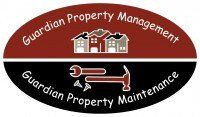Minneapolis Rolls Out New Fee Schedule for Rental Property Licenses
For the first time since 2012, the City of Minneapolis has increased fees for the licensing of local rental properties. Passed at the City Council’s meeting on Friday, August 3, the new fee schedule went into effect on January 1, 2019.
In addition, the City of Minneapolis has announced that it will be shifting from the previous licensing fee billing period, which ran from September 1 to August 31, to a new March 1 to February 28 schedule. To ease the transition to the new billing period, which will take full effect in March of 2020, the 2019 bill will be issued in two parts. The first bill, which landlords are slated to receive this month, will reflect the fees owed for January 1 to August 31, 2019 under the new rates, and will also include updated tier ratings for the rental properties in question. The second bill, scheduled to arrive in July 2019, will cover the period of September 1, 2019 to February 28, 2020. The two bills will come due, respectively, on March 1 and August 31 of this year.
A Closer Look
| Building Size | Tier | Building Fee | Unit Fee | Supplemental Fee |
| 1-3 Units | 1 | $ 80 | $ 30 | $ 0 |
| 1-3 Units | 2 | $ 85 | $ 60 | $ 100 |
| 1-3 Units | 3 | $ 100 | $ 155 | $ 200 |
| 4+ Units | 1 | $ 135 | $ 10 | $ 0 |
| 4+ Units | 2 | $ 160 | $ 20 | $ 150 |
| 4+ Units | 3 | $ 190 | $ 80 | $ 400 |
The table above outlines the new fee schedule. As before, licensing fees are determined according to two criteria: a property’s size, as measured in the number of units it contains, and its tier. A property’s tier reflects the building’s condition and level of maintenance, with fees increasing from Tier 1 to Tier 3. Another holdover from the previous fee structure is the unit fee, which applies to all properties comprising more than one unit, and must be paid for each additional unit in the property.
There are also, however, several significant changes. First, the “Building Size” categories have been pared down to two. Previously considered separately, properties with more than 16 units have been absorbed into the “4+ units” category. Similarly, condominiums are now subject to the same fees as other property types.
The most dramatic change is the addition of an entirely new “supplemental fee,” intended to encourage owners to properly maintain and manage their properties. Owners of Tier 1 properties are exempt from this fee, which increases sharply from Tier 2 to Tier 3.
Finally, unit fees have been significantly revamped. Whereas the previous fee schedule set unit fees at $5 across the board, the new schedule tailors them to a property’s size and tier, as well as increasing them considerably.
How the New Fees Will Affect You
Below, are a few examples of how these changes in licensing fees will affect owners of common property types. The tables that follow will show both the current fees (to the left of the arrow) and the new fees (to the right of the arrow), and will omit Tier 3 properties. First, let’s take a look at the licensing fees for a single-family home.
Rental Licensing Fee Schedule Comparison – Single-Family Home
| Tier | Building Fee | Unit Fees | Supplemental Fee | Total |
| 1 | $70 → $80 | $0 → $0 | N/A → $0 | $70 → $80 |
| 2 | $112 → $85 | $0 → $0 | N/A → $100 | $112 → $185 |
In the case of the Tier 1 single-family home, the changes are minimal and straightforward. Since Tier 1 properties are not subject to the new supplemental fee and the property comprises a single unit, the sole difference is the $10 increase in the building fee. On the other hand, with the addition of the supplemental fee, the owner of the Tier 2 home must now pay $185 in total.
The increased significance of tiers becomes even more apparent when considering multi-unit dwellings such as duplexes.
Rental Licensing Fee Schedule Comparison – Duplex
| Tier | Building Fee | Unit Fees | Supplemental Fee | Total |
| 1 | $70 → $80 | $5 → $30 | N/A → $0 | $75 → $110 |
| 2 | $112 → $85 | $5 → $60 | N/A → $100 | $117 → $245 |
Formerly, the owners of the Tier 1 and Tier 2 duplex have each paid an additional $5 per year for the additional unit. Under the new fee schedule, the unit fee has increased to $30 for Tier 1 properties and $60 for Tier 2 properties. The Tier 1 duplex owner now pays $110, whereas the Tier 2 duplex owner pays more than twice that: $245.
Finally, we’ll consider a larger rental property, containing six units.
Rental Licensing Fee Schedule Comparison – Six-Unit Building
| Tier | Building Fee | Unit Fees | Supplemental Fee | Total |
| 1 | $82 → $135 | $25→$50 | N/A→$0 | $107→$185 |
| 2 | $163 → $160 | $25→$100 | N/A→$150 | $188→$410 |
The gap between Tier 1 and Tier 2 properties hasn’t widened as dramatically as in the previous example, but the difference is still marked: the owner of a Tier 1 six-unit property pays $185—again, less than half of the $410 the owner of a Tier 2 six-unit building would pay.
What Guardian Property Management Can Do for You
These changes present local landlords with a twofold challenge: first, to master the nuances of the new fee structure, and second, to protect themselves from the increased financial consequences of the tier system by keeping their properties well managed and maintained. Guardian Property Management can help on both fronts.
Guardian’s staff is well-versed in the new fee schedule, and will ensure your applications, renewals and license fee payments are processed correctly and on time. As a client, you’ll be able to rest easy knowing that a dedicated team of professionals is performing the day-to-day upkeep and management that will help your properties earn that coveted Tier 1 rating and keep it, minimizing the effect of licensing fees on your bottom line.
Now more than ever, it’s important to know that your properties are in good hands. For more information on how Guardian can serve your needs, call 651-287-2011 or visit www.guardianprop.com .














